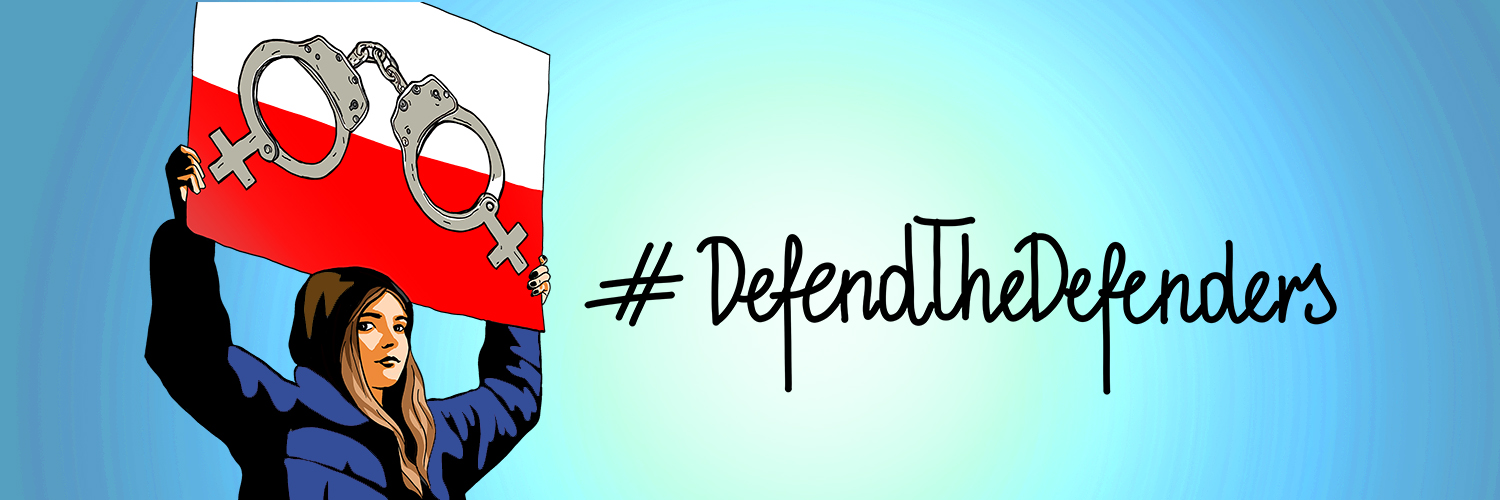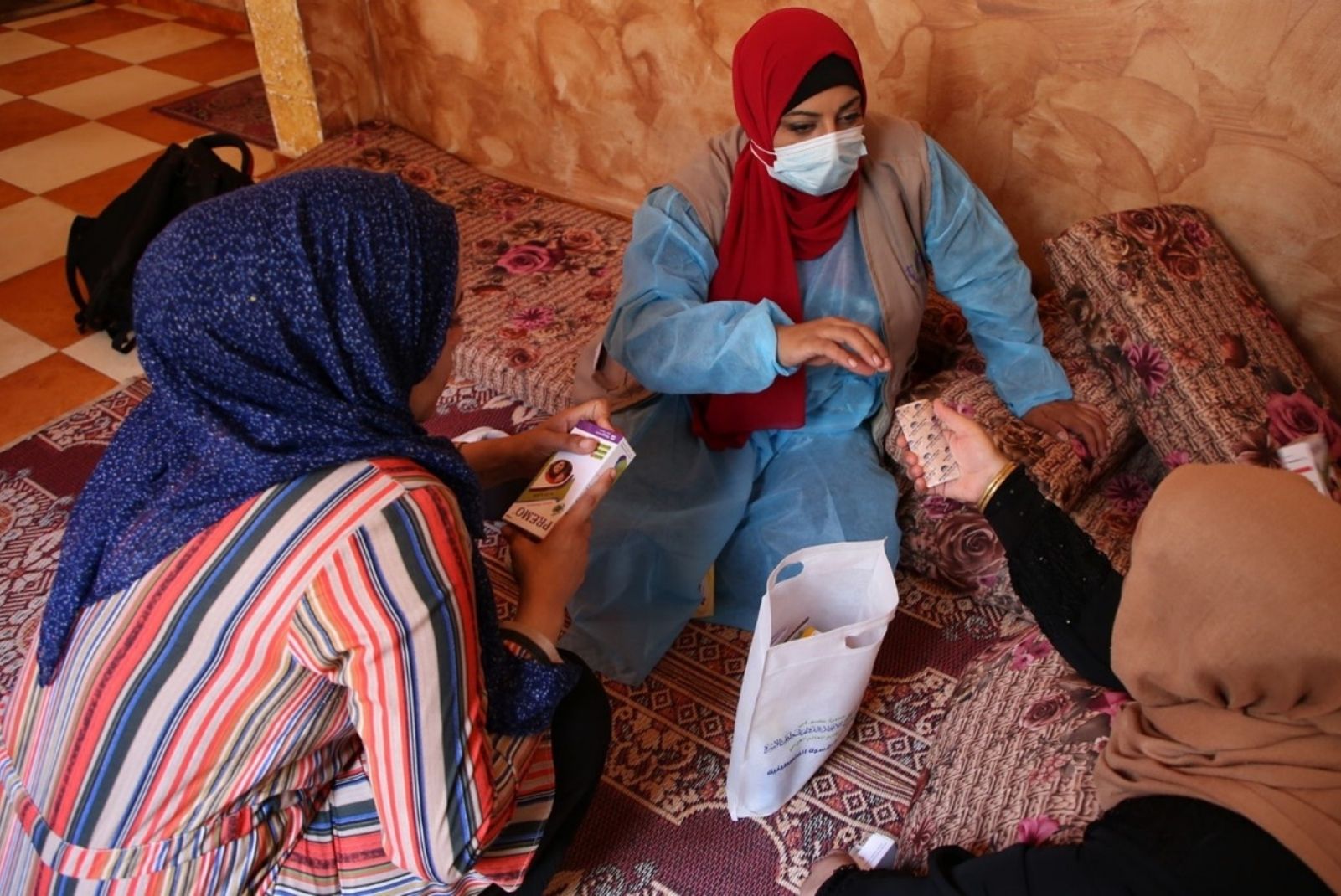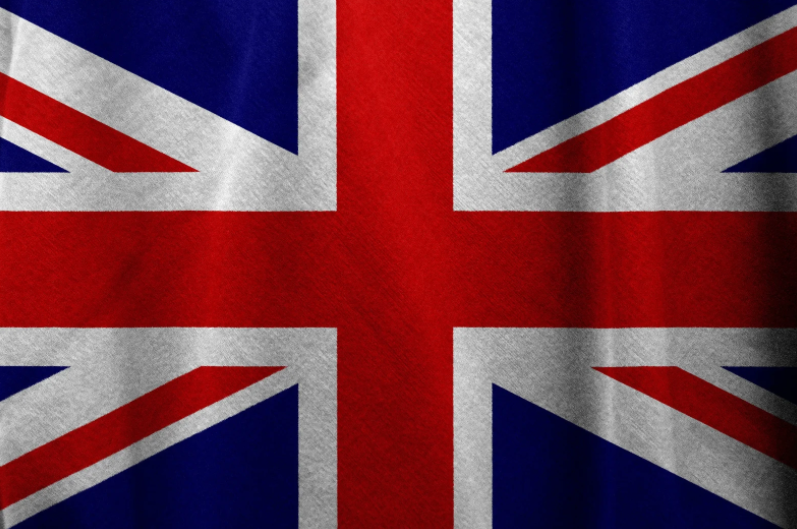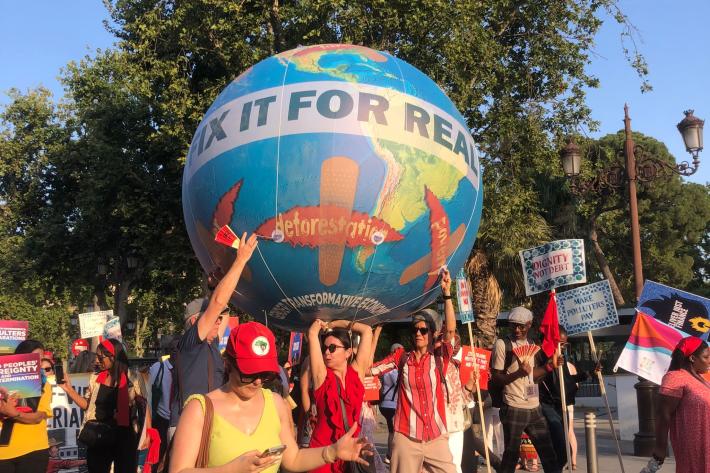Latest press releases
A selection of stories from across the Federation

Nearly 9 Million Denied Essential Reproductive Healthcare as Trump-Era Funding Cuts Force Global Clinic Closures, IPPF Reports
FOR IMMEDIATE RELEASE
For media enquiries
Telephone:
+44 7918 845944Email IPPF:
Email: media@ippf.org

| 17 November 2022
UK Autumn budget doesn't go far enough
If you are covering the UK autumn budget and reporting on foreign aid, you may find the below statement from the International Planned Parenthood Federation (IPPF) helpful: “The UK government has already decimated the aid budget and its reputation through severe economic mishandling, cutting billions from the very things that protect people during economic, political and social upheaval, including life-saving sexual and reproductive healthcare. “It is also the only country to be spending the majority of its dedicated overseas aid budget within its own borders, taking advantage of legislation to pay for refugee and asylum costs in the UK rather than increasing domestic and overseas budgets accordingly. “The UK government cannot continue to fight the fire of one humanitarian crisis by diverting much-needed resources from other vulnerable people, nor continue to balance its books on the backs of the poorest people in the world - who, as MP Andrew Mitchell stated, will be damaged, maimed, or die as a result. “This government promised to give women and girls the freedom they need to succeed and prevent the worst forms of human suffering worldwide. If it is to deliver on its promises and revive its sunken reputation, it must spend dedicated budgets correctly, support people in the UK and beyond appropriately, and MP Andrew Mitchell and the Chancellor must ensure a return to the 0.7% as soon as possible.”

| 01 November 2022
Women’s rights defenders face eight years in prison
Three leading women’s rights defenders are facing eight years in prison in Poland for exercising their right to peaceful protest. Prosecutors in Warsaw filed the indictment against Marta Lempart, Klementyna Suchanow and Agnieszka Czerederecka-Fabin of the All-Poland Women’s Strike (Ogólnopolski Strajk Kobiet, OSK), a partner of the International Planned Parenthood Federation, European Network, for allegedly organizing protests during the COVID-19 pandemic. Massive protests were prompted back in October 2020 by the decision of the illegally appointed Constitutional Tribunal to impose a near-total ban on abortion care. Peaceful protesters were met with excessive force, with authorities using tear gas, pepper spray and physical assault. Now, two years on, women human rights defenders (WHRDs) are still being attacked by Polish authorities, with defenders facing violence from law enforcement and far-right groups, including bomb threats, as well as smear campaigns in state-controlled media, detention and excessive criminal charges orchestrated and encouraged by the government. In the case of the All-Poland’s women’s strike members, these charges include “causing an epidemiological threat”, endangering public health and publicly praising crimes. The new indictment against the women’s rights defenders came just days before the second anniversary of the near-total ban on abortion, which has killed six women so far. It also comes in the same month that a court hearing was held in the trial of Justyna Wydrzyńska. Justyna, a member of Abortion Without Borders and the Abortion Dream Team, is facing up to three years in prison for facilitating an abortion that didn’t happen. Her case marks the first in Europe where a WHRD is being prosecuted for helping ensure abortion care by providing abortion pills. Justyna’s trial is ongoing. Irene Donadio of the International Planned Parenthood Federation, European Network, said:

| 12 April 2022
FCDO provisional 2021 UK aid spending shows grim reality of aid cuts
Today, the Foreign, Commonwealth & Development Office (FCDO) published its provisional statistics report on UK aid spending for 2021. The total overall aid spend was £11.5 billion, down from £14.5 billion in 2020 following the UK government's reduction to overseas development aid (ODA) from 0.7 per cent to 0.5 per cent of gross national income (GNI), citing the economic challenges posed by the COVID-19 pandemic. ODA improves the lives of people around the world, helping them access the healthcare they deserve, including lifesaving sexual and reproductive healthcare. It also helps tackle global disease, eliminate poverty, provide humanitarian assistance during conflict and reduce the impact of climate change. Dr Alvaro Bermejo, Director-General for IPPF, said: “While not surprising, the provisional UK aid spend for 2021 shows the grim reality of making such severe cuts during the tremendous global upheaval of a pandemic, when continued solidarity, support and humanitarian assistance from the wealthiest nations is most needed. “The government already knew from the equalities impact assessment that these cuts to promised funds would be devastating for women, girls and diverse groups, who disproportionally experience the effects of poverty, disease and climate change while also bearing the burden of violence, especially in conflict. “Not only that, but the government also chose to distribute the dedicated aid budget to other government departments. This includes a staggering £915 million to the Home Office and counting so-called ‘donations’ of excess COVID vaccines to other countries, which could have been given to those in need instead. The aid cuts left millions of women in Ukraine with no control over their bodies, their futures, or their lives, just as it did in Afghanistan, Ethiopia, Yemen, Sudan and Syria. Today, the role of the UK in building a better, safer world is more critical than ever if there is any hope of reversing the impacts of the cuts and the government must return to the 0.7% as soon as possible – the lives and futures of people depend on it”. Key statistics include: The provisional ODA:GNI ratio for 2021 was 0.5 per cent, or £11.5 billion. In 2021, UK Official Development Assistance (ODA) was £11,496 million, a decrease of £2,982 million (20.6 per cent decrease) on 2020. In 2021, UK bilateral ODA was £7,086 million (a decrease of 25.7 per cent) while U.K. multilateral ODA was £4,411 million (a decrease of 10.8 per cent). The Foreign, Commonwealth and Development Office (FCDO) spent £8,308 million in 2021, compared with £10,664 million in 2020 (a decrease of £2,356 million). Non-FCDO5 spend on ODA in 2021 was £3,189 million, compared with £3,815 million in 2020 (a decrease of £626 m). The non-FCDO share was 27.7 per cent, up from 26.3 per cent in 2020. In 2021, £550 million of UK ODA was spent on activities to address the COVID19 pandemic². The Home Office spent £915 million of ODA in 2021 (an increase of 53.3 per cent). This was mostly due to increased accommodation costs for asylum seekers to ensure the measures set out in law were adhered to in limiting the spread of COVID-19. For media enquiries, please contact Karmen Ivey on kivey@ippf.org or media@ippf.org About the International Planned Parenthood Federation The International Planned Parenthood Federation (IPPF) is a global service provider and advocate of sexual and reproductive health and rights for all. For over 65 years, IPPF through its 118 Member Associations and 15 partners, has delivered high-quality sexual and reproductive healthcare and helped advance sexual rights, especially for people with intersectional and diverse needs that are currently unmet. Our Member Associations and partners are independent organizations that are locally owned, which means the support and care they provide is informed by local expertise and context. We advocate for a world where people are provided with the information they need to make informed decisions about their sexual health and bodies. We stand up and fight for sexual and reproductive rights, and against those who seek to deny people their human right to bodily autonomy and freedom. We deliver care that is rooted in rights, respect, and dignity – no matter what.

| 29 March 2022
Government of Japan, through its support for IPPF, will provide life-saving health care services to the most vulnerable populations in Palestine
With support from the Government of Japan, the IPPF Member Association in Palestine (PFPPA) is launching a new project in Palestine targeting the most vulnerable populations that have been severely affected by the humanitarian crisis and the COVID-19 pandemic. It is estimated that at least 1.45 million people in Palestine are in need of healthcare-related humanitarian assistance. The escalation of the conflict in Gaza in May 2021, in addition to the long-standing severe restrictions on movement and inadequate healthcare systems, have resulted in the loss of many lives, the destruction of the healthcare system, and negative impacts of the COVID-19 pandemic. Together these have increased poverty levels and strained the healthcare system resulting in increased humanitarian and medical assistance needs. In 2022, it is estimated that 63% of the population living in Gaza and 23% in the West Bank will continue to need humanitarian assistance. The vulnerability of women and girls in particular is even greater, with serious and sometimes life-threatening health consequences. In this context, PFPPA will reach vulnerable and hard-to-reach populations (especially women and girls) with sexual and reproductive health and rights (SRHR) services, including sexual and gender-based violence (SGBV) related services. This will focus on five locations: Gaza, Hebron, Halhoul, Bethlehem and Ramallah. By the end of February 2023, PFPPA aims to: Deliver quality SRHR and SGBV-related services to approximately 36,000 women and young people through PFPPA clinics in the 5 project target areas. Deliver a Minimum Initial Service Package for reproductive health in crisis situation (MISP: sexual and gender-based violence response, HIV and sexually transmitted disease prevention and treatment, emergency obstetric newborn care, family planning, comprehensive abortion care, etc.) to 4,800 people through mobile clinics in project target areas in Gaza and the West Bank. Deliver prenatal and postpartum door-to-door services to 160 women, including counselling and services to promote healthy pregnancies and prepare women for childbirth. Deliver "birth preparedness" services to 30 women and distribute kits consisting of basic supplies for pre- and postpartum preparation, including essential newborn care. Deliver SRH and SGBV services to 2,000 women and girls through mobile apps and telecommunication projects. H.E. Hajime Hayashi, Ambassador of Japan to the United Kingdom, said: “We are delighted to be working with the IPPF to improve the health of women in Palestine, who are increasingly vulnerable to the humanitarian crisis and the impact of the new coronavirus outbreak. This effort will not only contribute to the realization of Japan's emphasis on Universal Health Coverage (UHC), but will also have a direct effect on human security.” Dr Alvaro Bermejo, Executive Director of IPPF, said: “With the support of the Japanese government, IPPF will be able to provide health and life-saving services to vulnerable women in Palestine. We are very grateful for the opportunity to work with the Japanese government to stand with those affected by the conflict and the COVID-19 to ensure that no one is left behind.” Ms Ammal Awadallah, Executive Director of PFPPA, said: “PFPPA is committed to ensuring that all services provided by their team to the population, regardless of each individual's circumstances, are of high quality and are provided securely, with dignity and respect, protecting all those involved from any form of harm. Furthermore, through the generous support of the Japanese government, for which we are greatly appreciative, PFPPA will be able to deliver essential services related to Sexual Reproductive Health Rights (including SGBV) to those living in marginalized and remote areas most in need of such services.” International Planned Parenthood Federation (IPPF): Founded in 1952 in Bombay, India, IPPF’s founding members included Madam Shizue Kato, one of Japan's first female parliamentarians and the leader of the family planning movement. Today, IPPF is one of the world's largest international NGOs working to defend sexual and reproductive health and rights and to deliver SRH services and information to all people (especially vulnerable people) through its grassroots network of 120 Member Associations and Collaborative Partners working in 140 countries including Palestine around the world. Contact: Yuri Taniguchi, Chief Strategic Partnerships and Development Advisor (S.E.Asia), International Planned Parenthood Federation (IPPF) London Office

| 18 March 2022
Equalities Assessment: UK Government knew 2021 aid cuts would significantly impact women and girls
The Government’s Equalities Assessment shows that the government was well aware that the scale of the 2021 aid cuts to specific gender interventions, including Violence Against Women and Girls and Sexual and Reproductive Health and Rights, would disproportionately impact women, girls and people with protected characteristics such as those living with disabilities. The U.K. government were also aware that the aid cuts would reduce services available to survivors of sexual violence, including sexual exploitation, abuse and sexual harassment. Dr Alvaro Bermejo, Director-General of the International Planned Parenthood Federation, said: “We are pleased to see the long-awaited equalities assessment and are hopeful that public scrutiny will encourage the Government to double down on its efforts to champion and support equality. Government commitments are especially significant for 2022, given the scale of the 2021 aid cuts to specific gender interventions, including those helping to end Violence Against Women and Girls, Sexual and Reproductive Health and Rights programmes and targeted interventions aimed at reaching those left furthest behind – including people living with disabilities. “Today, the role of international aid in building a better, safer and equal world is more relevant than ever as the Ukrainian people look to governments across the globe to support them during the most severe humanitarian crisis Europe has seen in years. With the EU predicting up to 7 million displaced people and vulnerable refugee populations requiring distinct and personalised care, we ask the U.K Government to step up for the international community and return to the 0.7% aid target as soon as possible – the lives and futures of people across the globe depend on it.” Manuelle Hurwitz, Director of Programmes for IPPF, added: "The government knew the reduction to development programmes would completely contradict its priorities of getting 40 million more girls into education by 2025 flies in the face of achieving gender equality and yet it chose to proceed with them anyway. For media enquiries, please contact media@ippf.org

| 03 March 2022
Statement on the growing humanitarian crisis in Ukraine
Over the past few days, the world has watched in horror and disbelief at the events unfolding in Ukraine. It is estimated that over 500,000 people have now fled – many of whom are women and children – into neighbouring countries such as Poland, Hungary and Romania. The UN anticipates 4 million refugees by July 2022. During Humanitarian crises, sexual and reproductive healthcare is often overlooked. But the reality is daily sexual and reproductive healthcare needs such as essential care for pregnant people, access to menstruation products for people who menstruate, as well as ensuring people who need sexual and reproductive health assistance have access to the right information, remains an urgent priority. IPPF is working with partners on the ground in Poland to link those fleeing the conflict with critical sexual and reproductive health services as well as provide them with essential items. Julie Taft, Director of Humanitarian for the International Planned Parenthood Federation, said "As we mark one week since the invasion of Ukraine, the complex humanitarian situation has become even more apparent. Right now, millions across the country are fighting for their survival, while food, medical supplies and essential hygiene products run dangerously low, including equipment needed to provide life-saving sexual and reproductive healthcare. The destruction of healthcare infrastructure also means that women are forced to deliver their babies in bomb shelters. At the same time, sick and vulnerable new-borns must receive care in the basements of hospitals. "In response to the growing humanitarian crisis, the International Planned Parenthood Federation has partnered with the All-Poland's Women's Strike, a Polish women's rights movement currently supporting people displaced by the war. The $50,000 USD grant will go towards dignity kits, consisting of basic hygiene supplies, menstrual-hygiene products, blankets, food, diapers and baby clothes. Items will be distributed to Ukrainians who have fled into Poland as well as transported cross-border into Ukraine. The funds will also support the All-Poland's women's strike to link refugees who have crossed the Ukraine-Poland border with essential healthcare services. "IPPF is proud to partner with such a brave and unyielding organisation on the frontline and will continue to work closely with other NGOs to facilitate care for those who need it most. However, NGOs cannot operate efficiently without the support of the international community, which must guarantee the safe passage of humanitarian aid into Ukraine. The urgent need for unhindered humanitarian access is especially significant for unaccompanied minors and those left behind, who are often the most vulnerable populations and who will require distinct care during this tragic situation." Marta Lempart, Founder of the All-Poland Women's Strike, said: "We are deeply committed to helping displaced people flee the invasion of our neighbour, Ukraine. Our teams across Poland are working around the clock to support vulnerable people crossing both at the border, including unaccompanied minors at-risk of trafficking and those left behind or heading back to Ukraine. Both groups will require personalised care and support. "We are pleased to partner with the International Planned Parenthood Federation, so we can continue delivering dignity kits to those who need them most; for displaced people arriving with just the clothes on their back, access to even simple necessities are a lifeline. We are also thankful for the outpouring of support from across Europe - the funding will help care for exhausted families who have made it safely across the border, covering transport, rent, bills and other expenses as they begin to build their futures outside of Ukraine. "Disasters reinforce, perpetuate, and increase existing inequalities, making bad situations even more tragic and resulting in consequences that will carry down for generations. But with the international community's support, we can ensure that organisations like Women's Strike and IPPF are there for people every step of the way." Click here if you would like to donate to IPPF's Ukraine Appeal. For media enquiries, please contact Karmen Ivey on kivey@ippf.org or media@ippf.org

| 24 February 2022
Statement on the escalating conflict in Ukraine
Following the disturbing reports coming out of Ukraine, IPPF has released a media statement on behalf of the Federation and its Member Association in Ukraine. Despite the fact that sexual and reproductive healthcare (SRHR) needs increase significantly during conflict and humanitarian situations, the significant vulnerabilities of affected populations and displaced people are often overlooked, especially the experiences of women, girls and marginalized populations who are at increased risk of unintended pregnancy, sexually transmitted infections and sexual and gender-based violence. IPPF’s Director-General, Dr Alvaro Bermejo, said: "The International Planned Parenthood Federation (IPPF) is deeply concerned about the escalation of conflict in Ukraine. We take our responsibility to preserve the enormous gains made in life-saving sexual and reproductive healthcare across the country very seriously, especially for women, girls and marginalised populations, whose vulnerability and experiences are so often overlooked in humanitarian situations. "For 20 years, IPPF has consistently worked to strengthen and protect the reproductive rights of people in Ukraine, working in the frontline conflict zones of Lugansk and Donetsk since 2014, training medical specialists to provide life-saving reproductive healthcare, psychosocial support and quality care to survivors of sexual and gender-based violence. “Our teams are now contingency planning across the region to address not only the needs of those still in Ukraine, but also the millions who are likely to be displaced by the conflict and who will require critical support to continue accessing healthcare. We will work closely with partners and other NGOs to ensure the least possible disruption to services. "IPPF stands in solidarity with the international community and the brave people of Ukraine who for the last eight years have faced terrifying and difficult circumstances that nobody should ever have to suffer through. We stand by IPPF's frontline team, who, despite the dangers, continue to facilitate life-saving healthcare for those who need it most. We will be monitoring the situation closely to ensure the safety of our colleagues across the region.” For European outlets, please contact press@ippfen.org For UK and other international media outlets, please contact Karmen Ivey on kivey@ippf.org or media@ippf.org
















